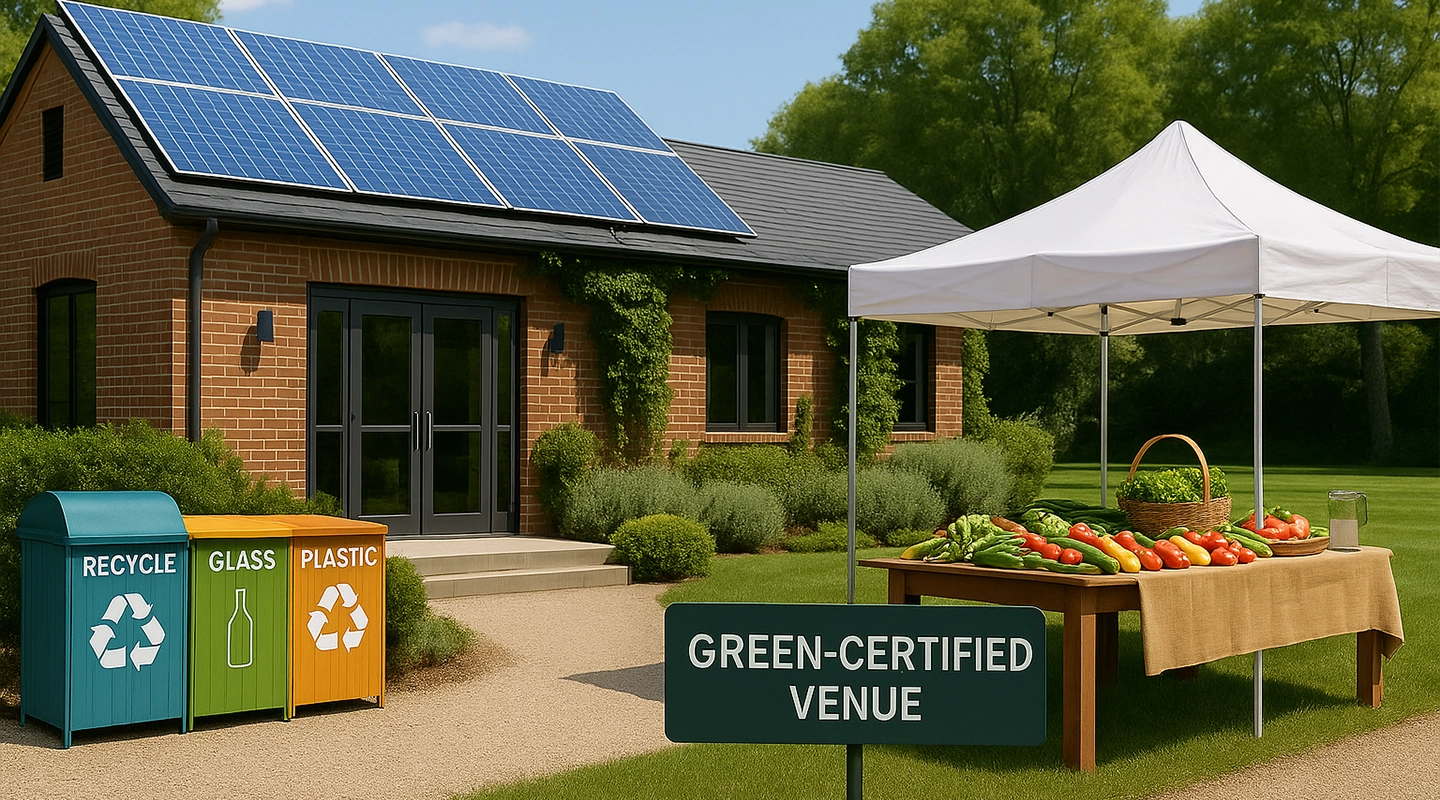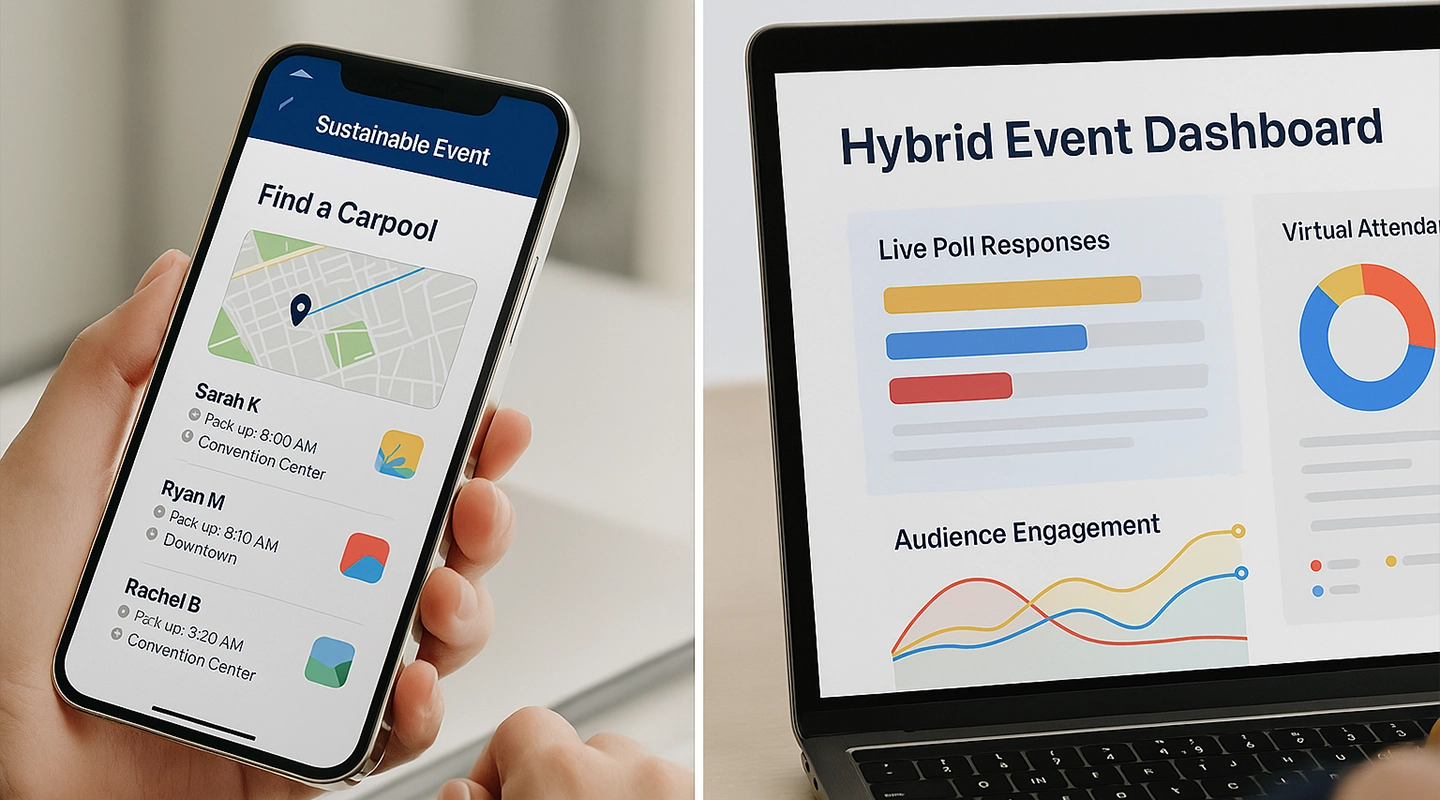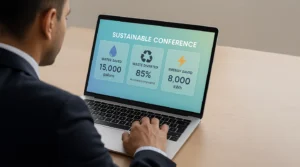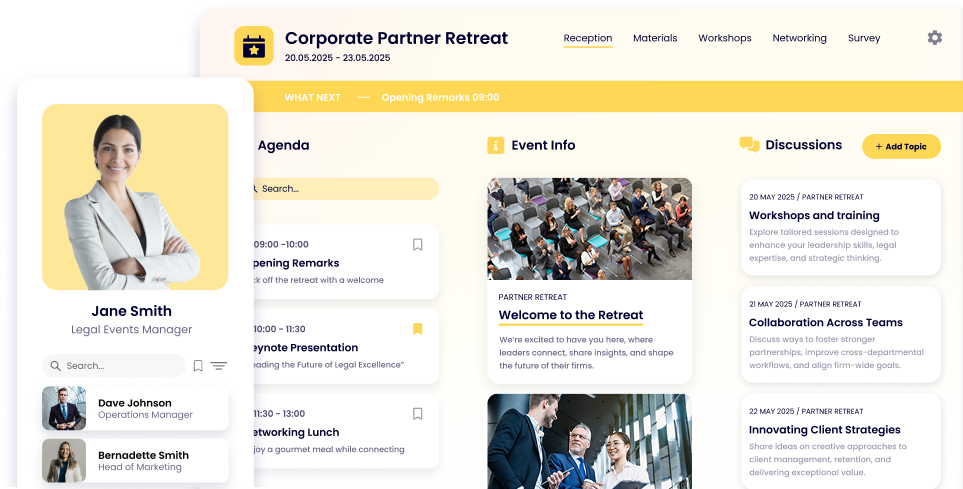Top Tips for Mastering Sustainable Event Planning

Lisa Broom | Head of Marketing

Planning an eco-friendly event? Learn how to make your event sustainable through proven strategies, minimize waste, and support the environment with these practical tips.
Key Takeaways
- Sustainable event planning is essential for reducing environmental impacts and aligning with consumer values.
- Implement strategies like sustainability audits, green technologies, and stakeholder engagement.
- Communicate sustainability efforts clearly to foster engagement and long-term commitment.
The Importance of Sustainable Event Planning

With growing environmental awareness, sustainability in event planning has become essential. Eco-conscious events aim to reduce waste, conserve resources, and support a greener future. Planners are expected to align with consumer values, reduce costs, and adopt ethical practices.
Environmental Impact of Events
Events can contribute up to 10% of global greenhouse gas emissions (MeetGreen). Major sources include transport, energy, and waste. Sustainable event management focuses on reducing this footprint through eco-friendly practices, efficient energy use, and reduced waste.
Consumer Demand for Sustainability
Consumers increasingly expect eco-consciousness from brands and events. Aligning event design with these values can:
- Increase attendance
- Improve public perception
- Encourage brand loyalty
Business Benefits of Sustainable Events
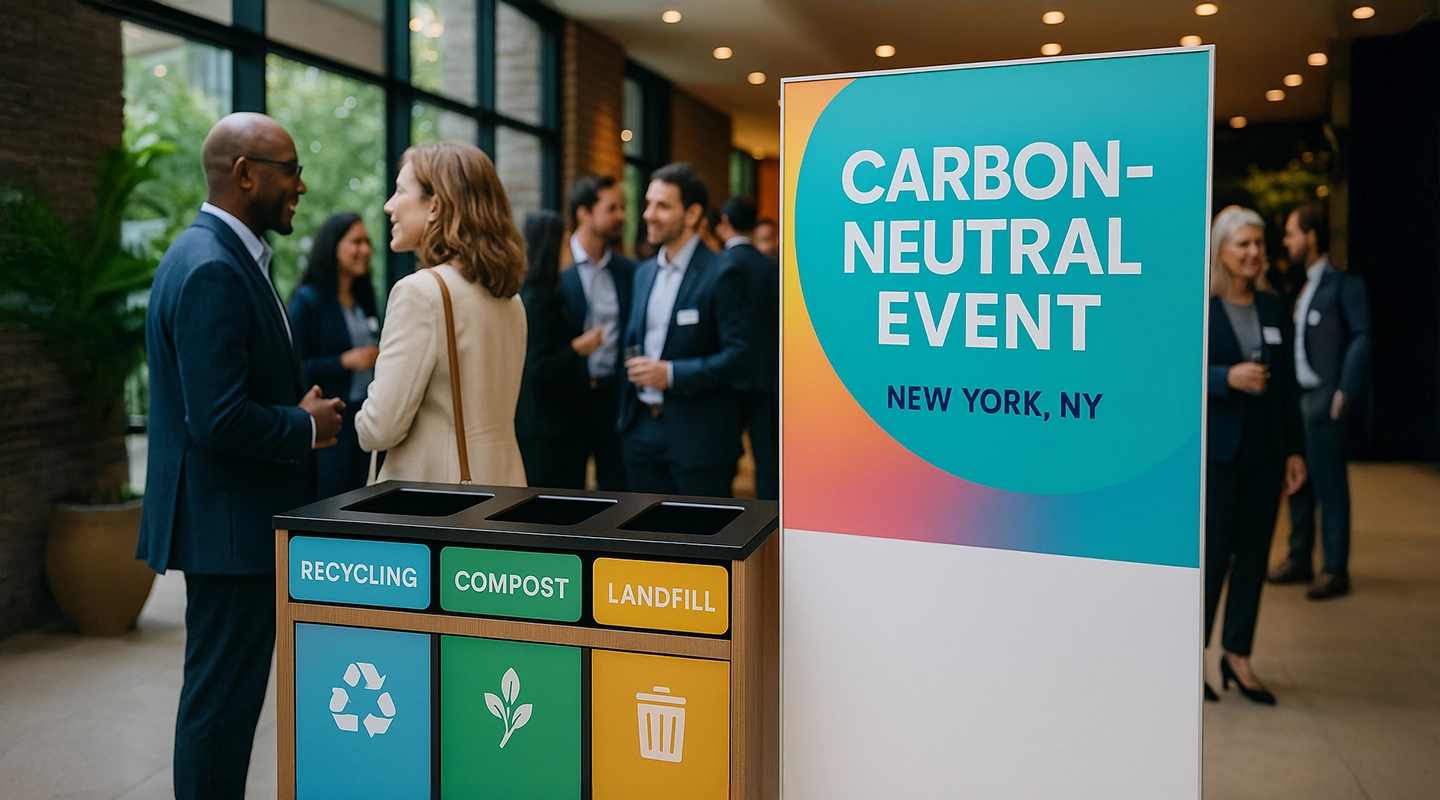
Sustainable practices:
- Enhance brand image
- Lower costs via waste and energy reduction
- Support CSR goals
- Extend reach through hybrid event formats
Defining Sustainable Event Management
Sustainable event management considers environmental, social, and economic dimensions.
Core Principles:
- Energy efficiency
- Waste reduction
- Local sourcing
- Fair labor
- Community engagement
- Cultural sensitivity
Key Strategies for Sustainable Event Planning
Conduct a Sustainability Audit
Start by auditing previous events or projections for the current one. Set SMART goals:
- Reduce plastic waste by 50%
- Cut energy use by 20%
Implement Green Technologies
- Solar-powered stages or lighting
- Digital check-ins and schedules
- Kinetic floors generating power
- Paperless apps like Fliplet for registration and content
Engage Stakeholders
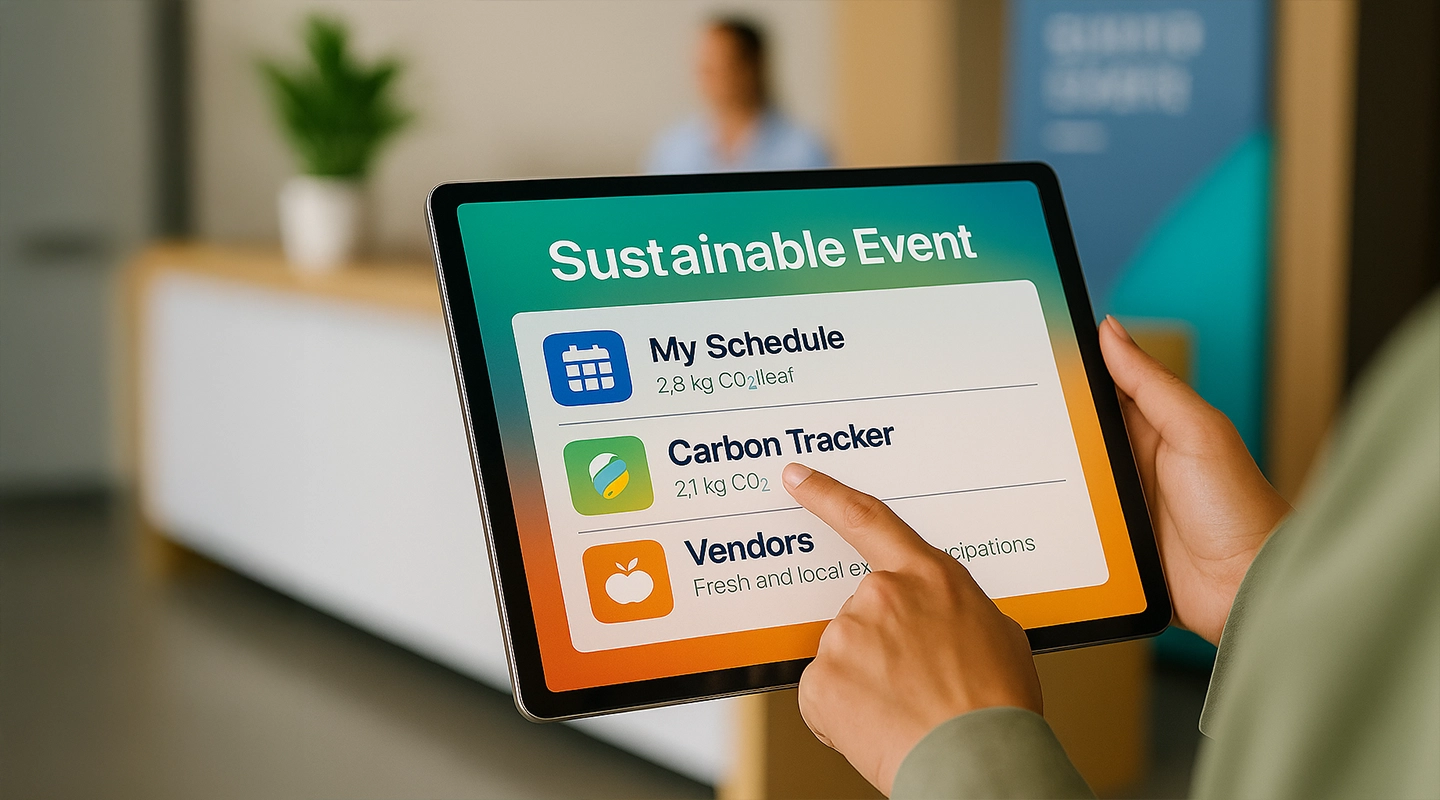
Include sustainability messaging in:
- Vendor contracts
- Staff onboarding
- Attendee pre-event communications
Choosing Eco-Friendly Venues
Select venues with:
- ISO 20121 / LEED certifications
- Renewable energy sources
- Waste sorting and recycling systems
Support Local Vendors:

Partner with:
- Local caterers
- Sustainable print shops
- Regional florists
Sustainable Catering Practices
Local and Organic Options
Use:
- Regional and seasonal produce
- Organic meats and dairy
- Plant-based menu choices
Reduce Waste
- Offer pre-order meals
- Use compostable or reusable serving ware
- Donate leftovers to local shelters
Efficient Waste Management Systems
Recycling and Composting
- Clearly labeled bins
- Staff or volunteers helping attendees sort waste
- Partner with zero-waste vendors
Smart Waste Management
Use:
- Trash sensors
- Automated composting systems
- Data analytics to improve future plans
Promoting Sustainable Transportation
Encourage Low-Emission Travel
- Carpool coordination tools
- Incentives for taking public transport
- Bicycle racks and walkable locations
Hybrid and Virtual Events

- Cut travel emissions by offering online attendance
- Fliplet-powered apps can support virtual attendance with content sharing and live updates
Digital Solutions for Paperless Events
Go Digital with:
- Invitations
- Check-ins
- Schedules
- Feedback forms
Use Fliplet apps to:
- Push updates
- Offer interactive maps
- Host downloadable documents
Event Apps for Info Sharing
Event apps help reduce paper and:
- Centralize attendee comms
- Host sustainability reports
- Offer carbon tracking tools
Communicating Sustainability Initiatives
Marketing Sustainable Practices
Use:
- Social media campaigns
- Green signage
- Sustainability landing pages
Educating Attendees
- Host on-site workshops
- Share eco-tips via apps
- Highlight local vendors and initiatives
Measuring and Reporting Sustainability Results
Set Measurable Goals
Examples:
- Reduce waste by 40%
- Save 10,000 sheets of paper
- Divert 80% of waste from landfill
Celebrate Wins

- Share results in post-event emails
- Create infographics of success metrics
- Recognize vendors with best practices
Summary
Sustainable event planning is more than a trend—it’s a responsibility. From venue selection and catering to transportation and digital tools, every choice can reduce your environmental footprint and improve brand reputation. Adopt strategies, measure impact, and celebrate sustainable success to lead the way in event innovation.
Check out Fliplet’s ESG and Sustainability feature for tools to track sustainability including calculate carbon footprint, offer eco transit tips, and generate reports.
FAQs
What is sustainable event planning?
Sustainable event planning reduces environmental impact while promoting social and economic responsibility throughout all event phases.
Why is sustainable event planning important?
It ensures events support environmental health, meet attendee expectations, and contribute to long-term business success.
How can I choose a sustainable event venue?
Select venues with green certifications and sustainability policies, and prioritize local vendors to cut emissions.
What are some key strategies for reducing waste at events?
Recycling programs, smart waste management systems, compostable serving ware, and digital tools reduce waste.
How can I engage attendees in sustainability efforts?
Educate via apps, share real-time eco tips, and involve attendees in initiatives like zero-waste challenges.


